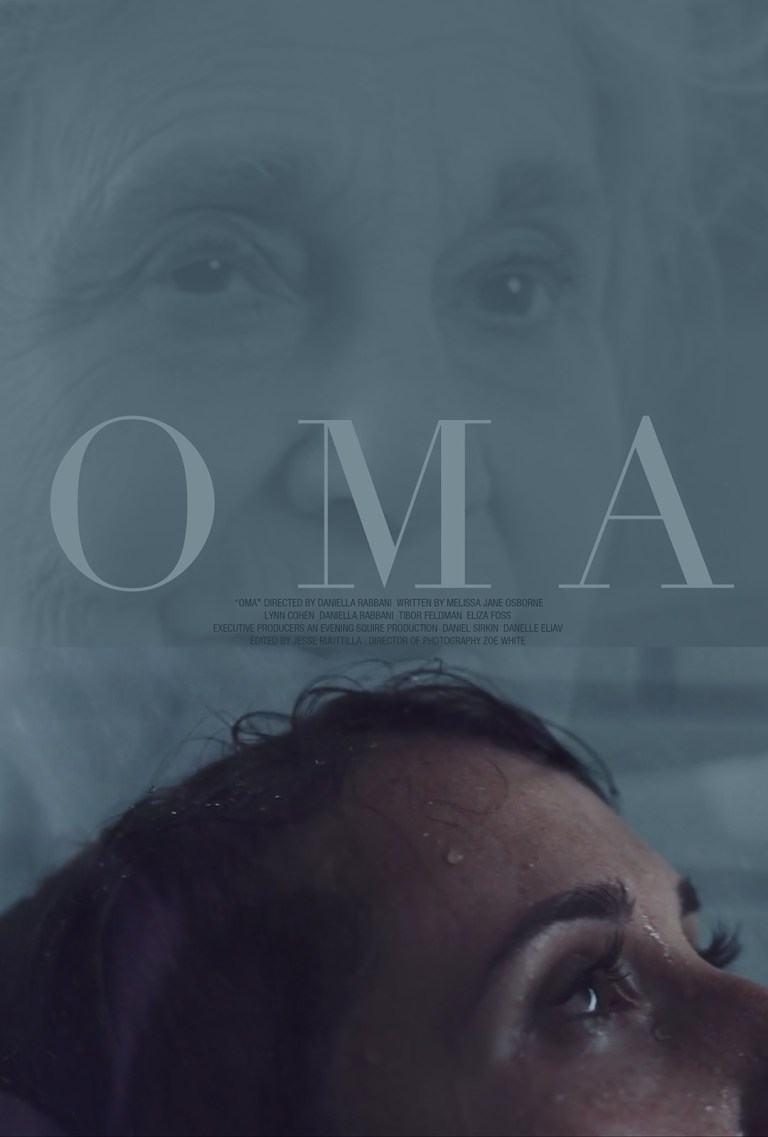
Growing up in Great Neck, acclaimed actress and first-time film director Daniella Rabbani spoke with many Holocaust survivors. She pursued stories from her own family too – but each time, it would only be bits and pieces.
“They set up these beautiful lives for their families in the aftermath,” Rabbani, 32, said, “and that was something I grappled with growing up.”
Ultimately, it was these conversations that helped inspire Rabbani to make her directorial debut with “Oma” back in 2015.
“The granddaughter in this film goes after Oma to get these stories, to get these details, and learn that the person in front of her is so much more interesting than any amount of fact or details of a time that has come and gone,” Rabbani said.
Now, after making showings in United Kingdom and Hollyshorts film festivals, the movie is finally making its debut in New York State on Sunday, showing at the Staller Center at the Stony Brook Film Festival at 9:15 a.m.
“Oma,” approximately 10 minutes long, focuses around a series of conversations between Oma, played by Lynn Cohen, and her granddaughter, who Rabbani plays.
Rabbani described the film as having a bit of a rough and documentary-like feel.
“The tone that we were going for is super raw and gritty, which was actually a little more intricate than you would think because we improvised a lot,” Rabbani said.
Rabbani noted that Cohen brought her own life into the character, heavily improvising and adding scenes otherwise not scripted.
One such scene was Oma getting ready one morning, putting on make-up and getting dressed. She mumbled to herself. She then picked up her extra skin, let it drop and laughed.
“I will say we cut out a lot because there was so much good stuff, actually, that the film was running about 5 or 7 minutes longer than it is right now,” Rabbani said.
A camera sits between Cohen and Rabbani during the film, serving as a symbolic divide between generations, as well as one that technology can create. Rabbani noted that, in many cases, people today “hide behind these screens” and that getting to truly know someone can be difficult.
“It’s that sort of dichotomy that we are exploring – the difference between that generation and this generation,” Rabbani said.
Rabbani said that while “Oma” has universal appeal, she believes a film like this could particularly resonate in New York.
“Being a Long Islander and New Yorker I know that with this film, being about a Holocaust survivor and her relationship with her granddaughter, there’s an audience for it in New York,” Rabbani said.
In the end, Rabbani said she hopes this story could impact the community and inspire others to reach out to older relatives to know them as whole people.
“It’s also meant to start the conversation about what our responsibility to these stories is, to the stories of our past, and how our family history molds and shapes us,” Rabbani said.






